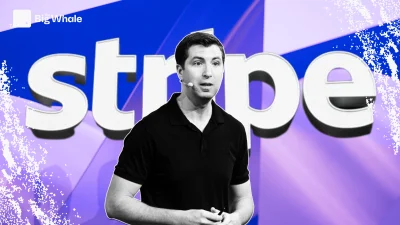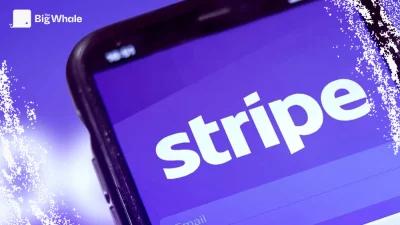The Big Whale: You had a big presence at NFT Paris, which welcomed a lot of people and brands. What did you think of it?
Pierre-Nicolas Hurstel: I think we can say that the event was a real success. It showed that France was at the forefront of the Web3 with a dense and attractive ecosystem. There were also a lot of foreigners.
I think that with the latest events in the sector (FTX collapse, uncertain regulation in the US, etc.), Europe is becoming the centre of gravity for Web3.
What makes you say that?
That's what came out of my discussions with the players on the ground, particularly the American investment funds (Andreessen Horowitz in particular, editor's note). For them, it's in Europe that everything is being played out. 🇪🇺
You had the opportunity to speak with the Digital and Culture ministers, and even with the 'first lady' Brigitte Macron. What message did you give them?
I told them that what they had seen was much more than a story about digital tokens in luxury and art.
For the first time in the history of the Internet, users can own digital things. With Web3, it's no longer four or five American giants who decide everything.
Why is it in brands' interests to embrace Web3?
Because it allows them to create a new relationship with their customers. In the physical world, companies have their own shops and distribution channels. Why would they need to ask permission from Google or Meta to address their users online?
The move to Web3 will enable them to have a more direct, qualitative relationship with their customers. This is a major business challenge for brands.
You often stress the importance of the wallet 👛. Why?
For me, the digital wallet is a sort of digital backpack. It contains all our stuff, our information, and we have the option of revealing only certain items that are in it. After that, you just have to be careful not to lose the bag, otherwise you lose everything!
What's the point of such a system in these cases?
It's important to understand that we've entered a new era. Today, all individuals can own their data, their objects and their digital identity. It's an irreversible movement.
Brands are having to adapt. Major groups like Meta, which has built an empire on its users' data, have understood that change is needed, and all brands are beginning to understand this.
The day after tomorrow, instead of tracking a web user with cookies (tags), we're going to let them connect with their wallet and provide the information they want to provide. This is the basis for a better relationship.
The customer who logs on does so voluntarily and in full awareness, whereas today some major groups collect data without their knowledge.
What will the wallet of the future look like?
A wallet is an interface with several addresses. In the future, these addresses will contain digital assets that we use every day and others that we use less frequently. There will also be badges to guarantee that we actually hold a digital asset placed elsewhere.
How would you sum up Arianee's business?
Arianee is a company that helps brands engage their community using Web3 tools, and in particular NFTs.
We essentially offer 3 use cases: the digital passport for a physical product, the interoperable membership card that replaces the "classic" loyalty programme, and finally digital assets such as profile photos and tomorrow brand wearables for metavers.
What technology do you use?
We have our own protocol that is open-source and compatible with the entire Ethereum ecosystem (EVM). It works with a payment token called the ARIA20. Anyone can create their NFTs on the protocol using it.
What's the point of using Arianee?
We consider our NFTs to be the most advanced on the market, because they are dynamic and relational. It is possible to check who issued them, retrieve them directly from a portfolio (non-custodial), time-stamp them according to what happens in the life of the NFT...
What is Arianee's business model?
When ARIA20 tokens are used to generate NFTs, part of them goes back to the Arianee association with which we share, in partnership with brands (L'Oréal, Richemont, Breitling, Moncler, etc.), the governance of the Arianee protocol. 🗳️
The other part is sent to the developers of the applications that create the NFTs. Currently, the main developer of the protocol is Arianee. They have created all the interfaces for using it at scale. Brands are our customers.
You have raised €20 million in 2022 . Are there any plans to raise further funds?
We are not looking for new funds. We are currently focused on deploying the previous round of funding. The priority is to develop the product and recruit new brands. We have enough to keep us going for a little while (laughs) . 🤑
The ARIA20 token is currently worth 10 times less than in autumn 2021 when it hit its all-time high. How are you managing the relationship with investors from the 2018 ICO (token issue)?
You have to take a long-term view with the token. In 2022, there were 1 million tokens created on the protocol. This year, there will be 5 million tokens. The price will pick up once we've managed to scale up.
We're working on having as many brands as possible. Mechanically, this will increase the use of the token and therefore its value. This will come gradually, we just need to be patient.
Heading 1 Heading 2 Heading 3 Heading 4 Heading 5 Heading 6 Lorem ipsum dolor sit amet, consectetur adipiscing elit, sed do eiusmod tempor incididunt ut labore et dolore magna aliqua. Ut enim ad minim veniam, quis nostrud exercitation ullamco laboris nisi ut aliquip ex ea commodo consequat. Duis aute irure dolor in reprehenderit in voluptate velit esse cillum dolore eu fugiat nulla pariatur.
Block quote Ordered list
Item 1 Item 2 Item 3 Unordered list
Text link
Bold text
Emphasis
Superscript
Subscript









